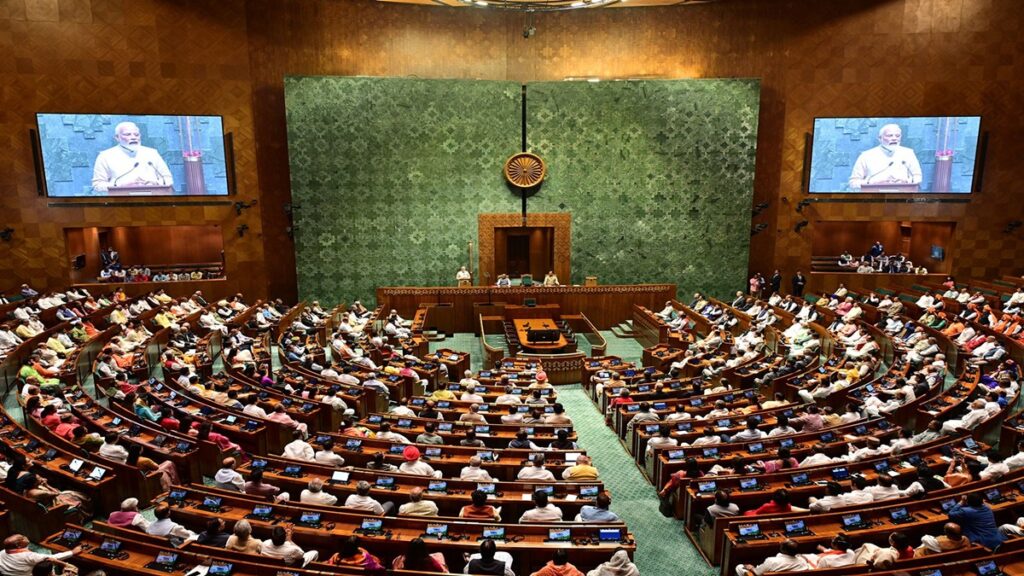Waqf (Amendment) Bill 2025: A Controversial Legislation That Sparks Heated Debate in Lok Sabha
The Waqf (Amendment) Bill 2025 has emerged as one of the most hotly debated topics in the Indian Parliament. Introduced in the Lok Sabha, the Bill underwent an intense discussion lasting nearly 12 hours before being passed with a majority of 288 votes against 232.
Union Home Minister Amit Shah Defends the Bill
During the heated debate, Union Home Minister Amit Shah strongly criticized the previous UPA government, particularly the 2013 amendments to Waqf laws. He accused the Congress-led regime of making politically motivated changes just before the 2014 elections. Shah emphasized the controversial transfer of 123 VVIP properties in Delhi’s Lutyens zone to Waqf authorities, calling it an ill-conceived decision that necessitated the new amendment.
Shah defended the Waqf (Amendment) Bill 2025, stating that it aims to enhance accountability and curb financial mismanagement within Waqf Boards. He insisted that had the previous government acted responsibly, such amendments wouldn’t have been necessary.
Kiren Rijiju Addresses Allegations
Union Parliamentary Affairs Minister Kiren Rijiju responded to claims that the Bill targets the Muslim community. He stated:
“You repeatedly claim our government acts against Muslims, yet it was your government that established separate Sunni and Shia Waqf Boards, further fragmenting the community. We propose a unified board to foster unity.”
Rijiju clarified that the Bill does not interfere with religious matters but ensures legal accountability and transparency. He highlighted that land disputes now require legal documentation, preventing misuse.
Opposition’s Fierce Criticism
Despite the government’s defense, opposition leaders fiercely opposed the Bill. AIMIM chief Asaduddin Owaisi tore a copy of the Bill in protest, calling it an “insult to Muslims.” He questioned why similar measures were not applied to Hindu religious trusts. In response, Rijiju countered that existing legal provisions already regulate Hindu institutions, whereas Waqf laws needed stricter oversight.
Congress leader Gaurav Gogoi condemned the Bill, describing it as an attack on Parliament and the Constitution. He accused the government of using the Bill to target Muslims.
Similarly, Samajwadi Party President Akhilesh Yadav criticized the term “Unified Waqf Management,” questioning its real intent.
JPC Chairman Jagdambika Pal’s Statement
Jagdambika Pal, Chairman of the Joint Parliamentary Committee (JPC) on the Bill, assured that it would benefit the Muslim community. He dismissed opposition claims that the Bill was a political strategy ahead of elections, stating:
“We have worked tirelessly for six months to draft a detailed report. Despite allegations, this Bill will be passed today.”
Religious Leaders Weigh In
Syed Naseruddin Chishty, Chairman of the All India Sufi Sajjadanashin Council, dismissed concerns that religious properties would be seized. He clarified that the Bill simply introduces stricter regulations to prevent Waqf property misuse.
However, Jammu and Kashmir political parties, except for the BJP, opposed the Bill. Former Chief Minister Omar Abdullah called it “disempowering for Muslims.”
Congress Vows to Overturn the Bill in 2029
Senior Congress leader Rashid Alvi assured that once Congress regains power in 2029, it will reverse the amendments. Congress spokesperson Pawan Khera described the Bill as “anti-Muslim” and “anti-constitutional,” arguing that it violates equality, federalism, and minority rights.
Congress MP K.C. Venugopal accused the government of using the Waqf (Amendment) Bill 2025 to divide India on religious lines.
National Commission for Minorities Supports the Bill
Contrary to opposition claims, National Commission for Minorities (NCM) Chairman Iqbal Singh Lalpura supported the Bill. He stated that the legislation serves the larger interests of the community and dismissed fears of mass dispossession of Waqf properties.
Key Features of the Waqf (Amendment) Bill 2025
– Enhanced Transparency: Stricter oversight to prevent financial mismanagement.
– Legal Documentation for Land Claims: Individuals claiming Waqf land must provide legal proof.
– Unified Waqf Management: Proposal to merge Sunni and Shia boards for better administration.
– Revised Role of District Collectors: More authority in maintaining records and preventing fraud.
– Preventing Misuse: Ensures that Waqf properties are not illegally transferred or misused.
A Bill That Continues to Stir Controversy
The Waqf (Amendment) Bill 2025 remains one of the most contentious legislations in recent times. While the BJP government argues that it brings transparency and accountability, the opposition sees it as an attack on Muslim institutions.
With sharp criticism from Congress, AIMIM, and regional parties, the Bill could face legal challenges and political resistance. However, support from the National Commission for Minorities and certain religious leaders strengthens the government’s stance that the Bill serves the nation’s greater interest.
As debates continue, the long-term impact of the Bill on Waqf properties, religious communities, and India’s political landscape remains uncertain. Whether it will be upheld, amended, or repealed depends on the evolving political scenario



